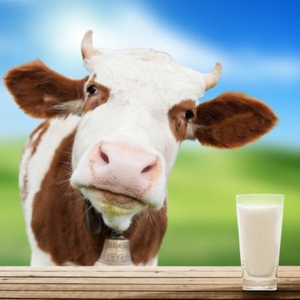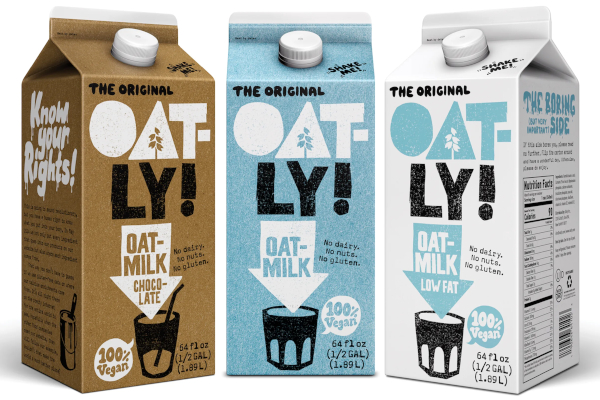Eight years after Oat Milk burst onto the North American market, the hype has died down. And folks are beginning to question the high-flown nutritional and environmental claims fans have long promoted for oat ‘drinks’. They’re just not as ‘complete’ as real milk…
Anybody with an interest in food culture and food innovations will remember when Oatly, the original Swedish plant-based milk, arrived in North America back in 2016. Healthy eating advocates, trendies and foodies, and even some nutrition professionals extolled its virtues as a wholesome substitute for cow’s milk.
Eight years in…
Now, those same early boosters are beginning to question their initial evaluations of the stuff. And fan support is wavering.
Folks are now questioning the healthfulness and wholesomeness of Oat Milk. Ironically, it’s a con-sequence of the intense interest the stuff generated, and ongoing studies that have been conducted along the way.
The test results have been discouraging, to say the least. Rather than bolstering the initial nutritional claims hyped for it, the stuff has come up alarmingly short. Though it has a very similar appearance and consistency to cow’s milk, and a slightly sweeter flavour, Oat Milk lacks many nutritional com-ponents its bovine counterpart boasts. And that’s a problem.
Kudos to cautions
Both for its nutritional shortcomings and its sugar content, many nutritionists and physicians are now recommending Oat Milk not be used as a replacement for regular milk when feeding growing children. Nor is it considered appropriate for older folks counting on milk to deliver extra vitamins or extra calcium for bone strength.
There’s also the question of Oat Milk’s relatively high sugar content – mainly maltose, which has a high glycemic index similar to that of widely demonized high-fructose corn syrup.
And Oat Milk also contains vegetable oil – analogous to butterfat in real milk – which is considered a less healthy alternative.
How it’s made
Oat Milk is really quite simple to make. You could make your own. Just soak rolled oats in water for a certain period of time. Then strain of the ‘milk’ from the pulpy solids. Commercial manufacturers may add the aforementioned vegetable oil plus some fortifying nutrients. Nothing out of the ordinary there. All conventional milk sold in Canada gets added vitamin D, by law.
What about that sugar?
There’s ‘added sugar’ and there’s added sugar. Which is to say, the exceptional sweetness of Oat Milk could be achieved in one of two ways. You might assume the maker doses their beverage with some kind of easily soluble sugar. Standard food processing procedure. But that’s not the answer here.
It turns out that, as the oats soak and their starch leeches out into the water, a natural enzyme reaction takes place converting some of the starch to a simple sugar. That’s the maltose. And that makes Oat Milk significantly more ‘fattening’ than cow’s milk.
My take
When it first hit the market, and to this day, Oatly bills itself as nutritous, sustainable and food-forward. The ‘about’ page at the official website, cutely titled ‘Oatly Who?’, relates: “Our goal is to always deliver products that have maximum nutritional value and minimal environmental impact.”
In plain English, they want to take cows – and their increasingly unsustainable ‘lifestyle’ – out of the milk loop.
The company is also pushing what it calls The Post Milk Generation: “A movement that you can be part of, either by actively choosing to swap cow’s milk for oat drink, or by taking a stand in the best way you know how to work for a more sustainable approach to what we consume as a society.”
Alas, oat ‘drink’ will never be a complete replacement for cow’s milk. Unless Oatly and other manu-facturers decide to pump it up with the amino acids, vitamins and minerals it needs to match real milk.
Then it becomes an ultra-processed food, in my book. One with ‘excess sugar’, to boot. Ouch.
Sorry, Oat Milk!
~ Maggie J.


